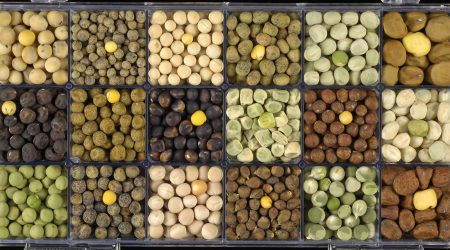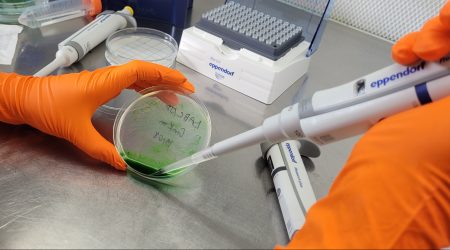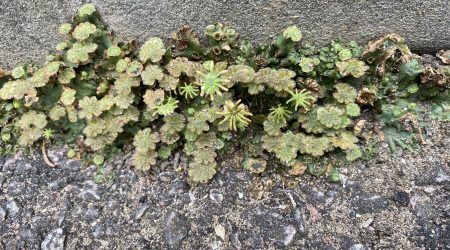“CaLiber” secures funding to study ‘Candidatus Liberibacter solanacearum’

A new consortium, CaLiber, has secured £2.3M to research the bacterial plant pathogen Candidatus Liberibacter solanacearum, its insect vectors, and their potential impact on UK crops.
The award is funded by UKRI-BBSRC as part of the Bacterial Plant Disease Program.
Candidatus Liberibacter solanacearum (Lso) and its insect vectors are considered an emerging threat to agriculture in the UK and are included in Defra’s Plant Health Risk Register.
The CaLiber consortium includes researchers from FERA, SASA, the John Innes Centre, Newcastle University, Rothamsted Research, and University of Strathclyde.
The proteobacterium Lso is associated with disease in a range of crops, most notably potato, tomato, carrot and celery, and it is vectored by insects known as “jumping plant-lice” or “psyllids”.
The most damaging psyllid species is Bactericera cockerelli (tomato-potato psyllid), which is associated with damage to Solanaceous crops (often referred to as “Zebra Chip” in potato) in North and Central America, New-Zealand and now South America.
Both the vector and the type of Lso responsible for Zebra Chip are considered A1 quarantine pests, and are not currently present in any part of Europe. In Europe, psyllids are responsible for transmitting Lso to Apiaceous crops such as carrot and can cause large economic losses.
The main species responsible are Bactericera trigonica and Trioza apicalis (carrot psyllid). Introductions of any of these pest species into the UK would be disastrous for the potato and/or carrot industry.
The CaLiber consortium aims to build on previous studies, advancing our knowledge of Lso and how it interacts with its insect and plant hosts in the UK and expanding our understanding of its effects on cultivated crops and the wider environment. We aim to:
- Sequence the genomes of Lso and its psyllid vectors in the UK and Europe
- Develop diagnostic test to more quickly detect pestiferous psyllid species and Lso genetic types
- Determine the prevalence of Lso in carrot plants, weed species, insect vectors, and the natural environment, in major carrot growing regions of the UK.
- Compare the population genetics of carrot psyllids in different regions of the UK and other European countries.
- Assess the potential for newly discovered Lso haplotypes to be transmitted to carrot and other economically important crops by psyllids and other vectors
- Investigate the impact on pathway risks of economic policy changes with respect to tariffs
- Evaluate the impact of transmission risk on environmental land management policy
This funding gives us the opportunity to continue to explore the role of Lso in its natural environment and in situations where outbreaks occur due to introduction of insect vectors, changes in agricultural practices, or changes in insect vector behaviour due to biotic or abiotic factors.
We know that novel plant pathogens are emerging at a faster rate than ever, and this research will give us important insight into why that might be.
This cross-discipline approach will enable us to model the risk of Lso outbreak in UK crops, assess the most-likely pathways for which this might occur and attempt to answer the question: “What are the drivers that distinguish damaging pests from benign organisms?”
We hope to develop tools and understanding to help manage this disease and prevent outbreaks in the UK to protect carrot and potato growing industries.
Image credit: Whitney Cranshaw, Colorado State University, Bugwood.org reproduced by CC BY 3.0 US



